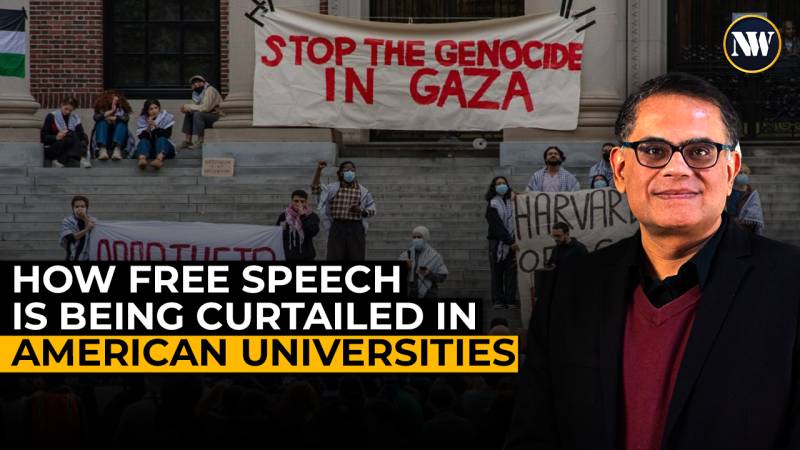On November 10, Columbia University suspended two student groups that organized multiple demonstrations in response to the Israel-Hamas war. The University denied funding and official recognition of the groups Jewish Voice for Peace (JVP) and Students for Justice in Palestine (SJP) after a joint walkout and “peaceful protest art installation,” which Columbia’s Chair of the Special Committee on Campus Safety said included unspecified “threatening rhetoric and intimidation.”
This was the third event that JVP and SJP organized following Hamas’s terrorist attack on Israel on October 7. Just as with the previous two events, Columbia officials restricted area access to Columbia ID holders in advance, a move one student described as “a tactic, in my opinion, to scare people from organizing and keeping things silent.”
Columbia University was neither the first nor the only higher education institution to ban Students for Justice in Palestine from its campus. Brandeis University revoked official support for the organization on November 8, two days before Columbia. Critical students and university officials on campuses where chapters of the national organization reside have expressed concern that it proliferates antisemitism and spreads hate.
Seven people, three of them Brandeis students, were arrested while protesting the university’s decision to ban SJP. Protesters faced charges including disorderly conduct, unlawful assembly, and assault and battery on a police officer. Dozens of students staged a walk-out assembly the following week, where they described police violence preceding the arrests, such as officers choking students and pinning them down with knees on their backs.
Suspensions of SJP also followed at George Washington University and the State University System of Florida, which accused the organization of supporting Hamas. The local chapter of SJP alongside the American Civil Liberties Union and Palestine Legal filed a federal lawsuit against Gov. Ron DeSantis and other Florida officials, arguing they gave no basis for the “material support” for terrorism allegations.
There have been numerous instances across U.S. education of freedom of expression stifled by harassment, institutional action, or the threat of violence. The Brandeis Center and Jewish Americans for Fairness in Education groups are taking legal action against the University of California System, UC Berkley, and its leaders for unchecked antisemitism, which they say has led to a spread of violence and harassment.
According to attorney and co-founder of the Foundation for Individual Rights and Expression Harvey Silvergate, “Universities should have no political positions whatsoever. … It is not their job to keep the peace by shutting up one side. It is their job to keep the peace and allow a forum for free expression,”
Silverglate further said of Harvard, “The job of a university is to provide a safe environment where students can speak, and students can listen.”


